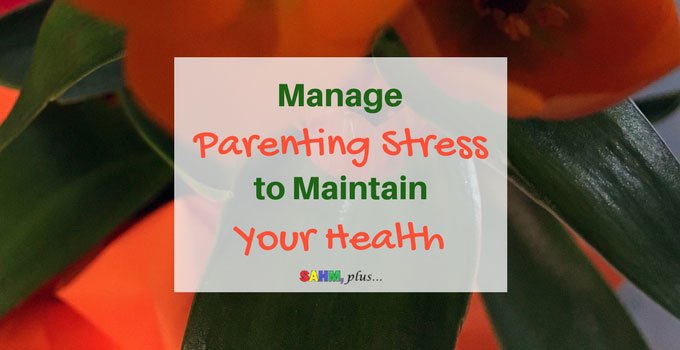Raising children is a rewarding, albeit, stressful experience. It’s hard being needed constantly. As a mother of two, I know how easy it is to put my own needs on the back burner and fall into the trap of being everything to my kids. Being on call 24 hours a day has a tendency to increase stress levels – having to be available at a moment’s notice, without regard to your own needs.
Of course, you may find yourself falling victim of mommy wars or the increasing mommy guilt for various reasons. And then there’s teaching them all the things. Like, I’m suddenly hit with the realization I have to teach diversity to young children. Or what they need to know in a presidential election (or more importantly, how not to act). Then, I have to hope, by some miracle, they grow up to be hardworking, productive, and responsible citizens. I don’t necessarily want them to do what makes people like them, rather what’s right.
As if all that wasn’t enough, we also have to contend with the unrealistic demands to be super moms!
There’s a lot a stake in the role of a parent, huh? It’s no wonder we’re under a lot of stress! But, if you continue to let the stress of parenting build, you may begin experiencing difficulty sleeping, headaches, or even lower immune system function.
Luckily, you can contain and lessen some of the anxiety to combat these issues before they get out of hand.

How to relax and manage parenting stress
In order to effectively manage parenting stress, it’s important you take care of yourself.
Watch What You Eat
Eating a healthy and balanced diet is good for your body as well and your ability to handle stress. Through proper portion control and watching the kinds of food you eat, you’ll be able to balance your energy levels. Eating right and drinking water will also aide in helping you to fall asleep more easily at night.
Be sure to include a protein with every meal and snack. In addition to other health benefits of protein, it will help to balance your blood sugar levels and helps fuel your body.
Complex carbohydrates increase your brain’s serotonin levels, which help you stay calm and in a good mood.
Eat plenty of Omega-3 fatty acids! These help regulate stress hormones and are commonly found in fish, seeds, and nuts.
Keep simple carbohydrates and sweets to a minimum. They may give your body a quick boost of energy, but will not help you maintain it.
Get Plenty of Exercise
Your body releases endorphins during a workout. These chemicals brighten your mood. This is also beneficial in preparing your brain for negative stress it may encounter down the road.
In the Physical Activity Guidelines for Americans, it’s recommended to be at least moderately active about 150 hours a week. That equates to a little more than 20 minutes a day. More regular, or more brisk, exercise can be even more beneficial to your health.
As reported on NPR, Gretchen Reynolds, a New York Times Phys Ed columnist, also says “If you can stand up every 20 minutes — even if you do nothing else — you change how your body responds physiologically.”
Get motivated to add some extra activity into your day, even if it’s as little as a 2 minute standing session every 20 minutes. Of course, if you chase smaller children around the house, you may have this part taken care of.
Set Aside Some Quiet Time or for Self-Care
It’s important to take some time for self-care. Even more importantly, remind yourself not to feel guilty for wanting or needing some alone time.
Anything as simple as a bubble bath, sitting down to a cup of chamomile tea at the end of the night, or watching a movie uninterrupted will have a positive impact on your mood.
But, consider devoting more time and energy into taking care of yourself. A spa day, mom’s night, or girl’s getaway weekend will help you recharge and maintain a positive attitude.
Look for Help
Always remember it’s okay to ask for help as a way to manage parenting stress. When you feel your stress levels rising, seek out the help you need to recharge.
If you need help getting the kids out of the house, consider a baby sitting swap, hiring a babysitter, or sending them to a grandparent’s house. If you have older children, help them find after-school activities. Don’t forget about parenting teamwork! Have your partner take over when you need a break.
Their being away will give you extra time to tend to your own needs. Have a quiet house will also give you time to call a friend and vent if necessary. And your children will have some bonus time with friends or exploring their personal interests.
When the stress of parenting begins to feel overwhelming, remember how important it is to relax. Staying in control of the situation and maintaining a positive attitude will go far with your children. Your kids learn by watching you. When you have stress under control, you can focus more on spending time with your family, and less on anxious feelings.
Tell me: What other ways do you manage parenting stress?


1 comment
There isn’t enough emphasis put on stress management for parents. this has some great tips!
Comments are closed.